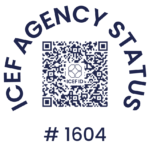In the public, private, and not-for-profit sectors, marketing is now recognised as fundamental to general management decision-making and is widely considered a critical business function. Developing essential marketing skills can make you pivotal to strategic decision-making. These skills include informing and leading on markets, driving strategy and income, managing customers, and monitoring competitors.
As a result, this fully online MSc in Marketing can prepare you for a broad range of marketing, management, and consulting careers. You’ll be equipped to negotiate the challenges of highly competitive global markets. This includes leading activities ranging from marketing, brand, and communications to business development and operations management.








